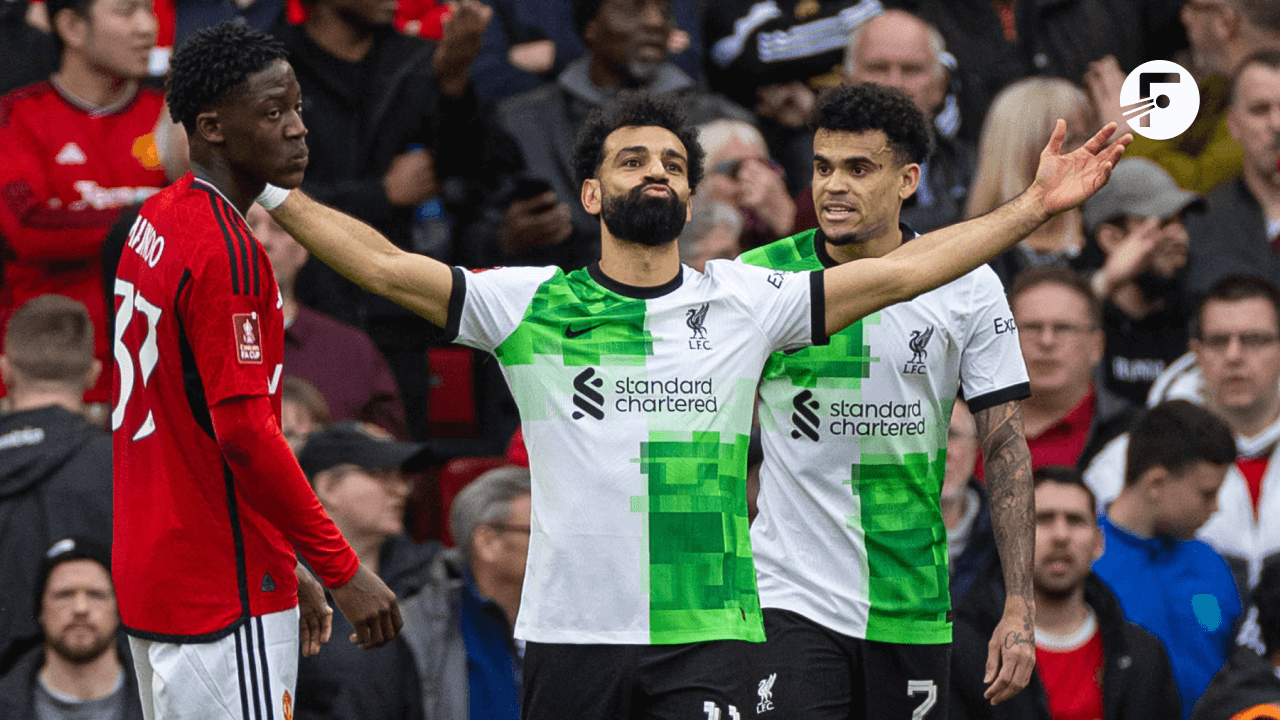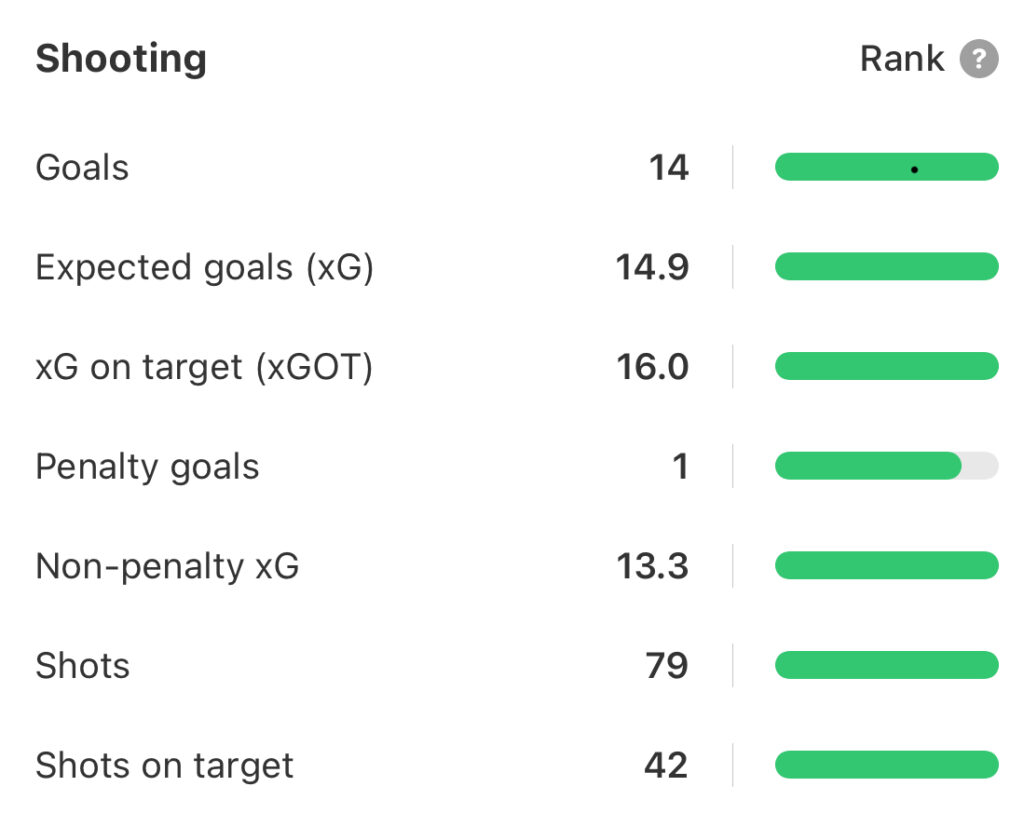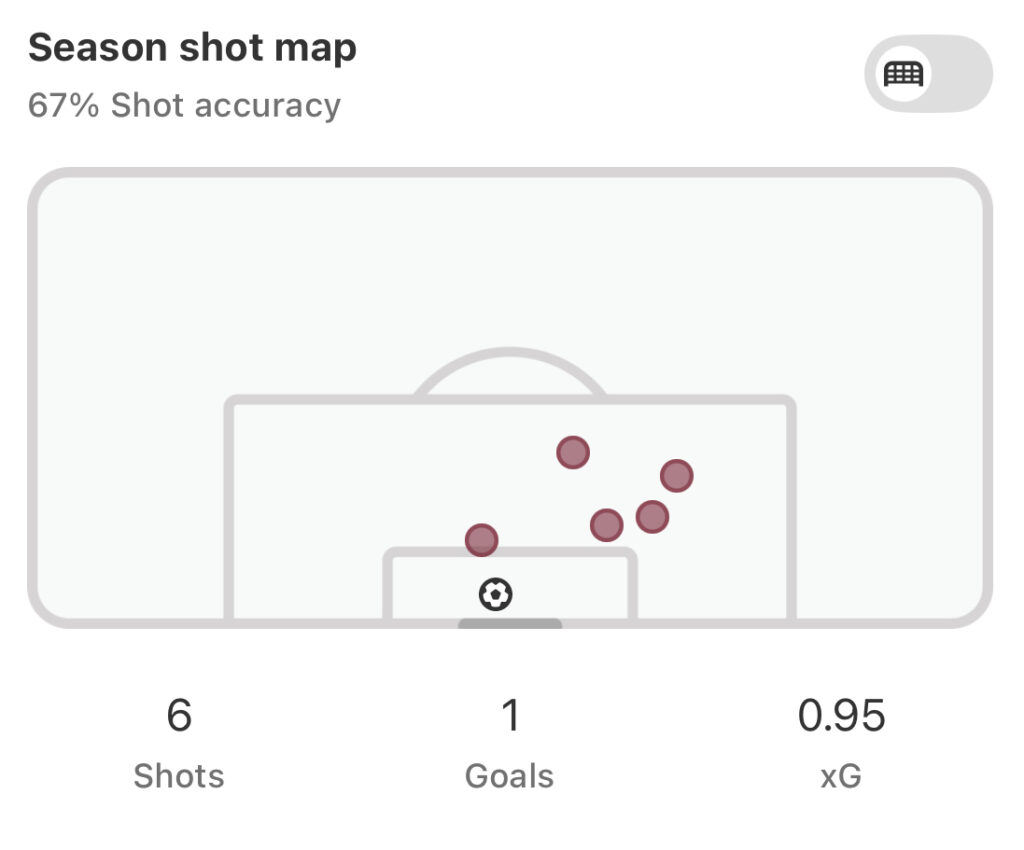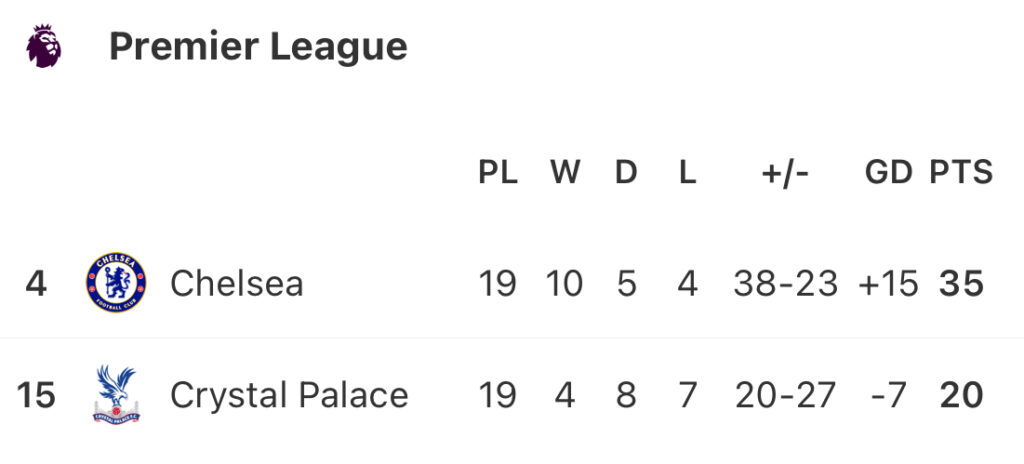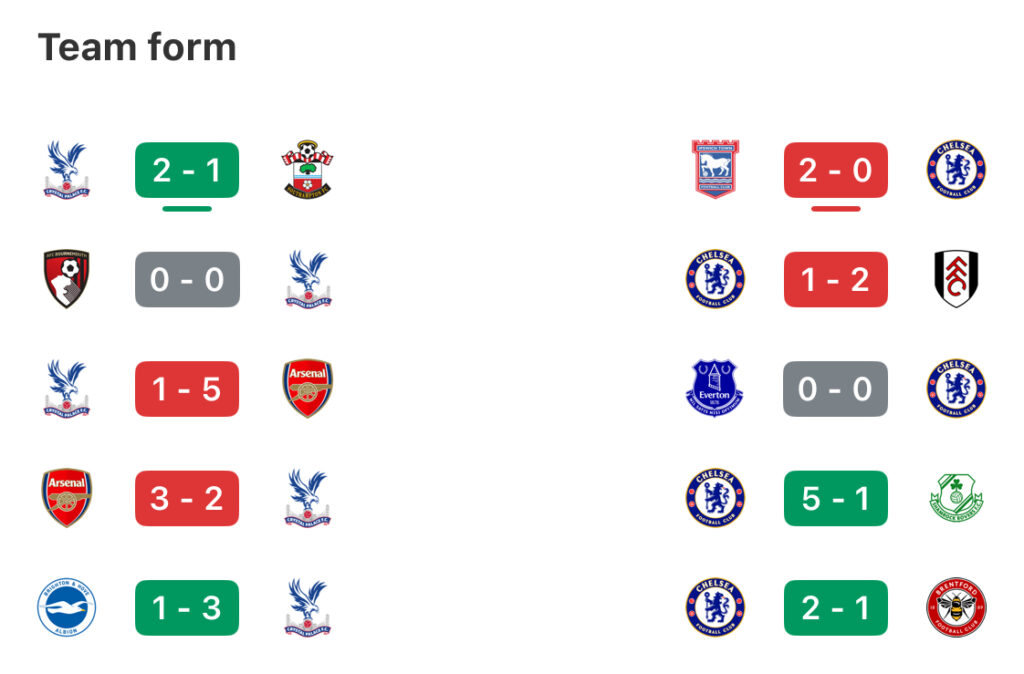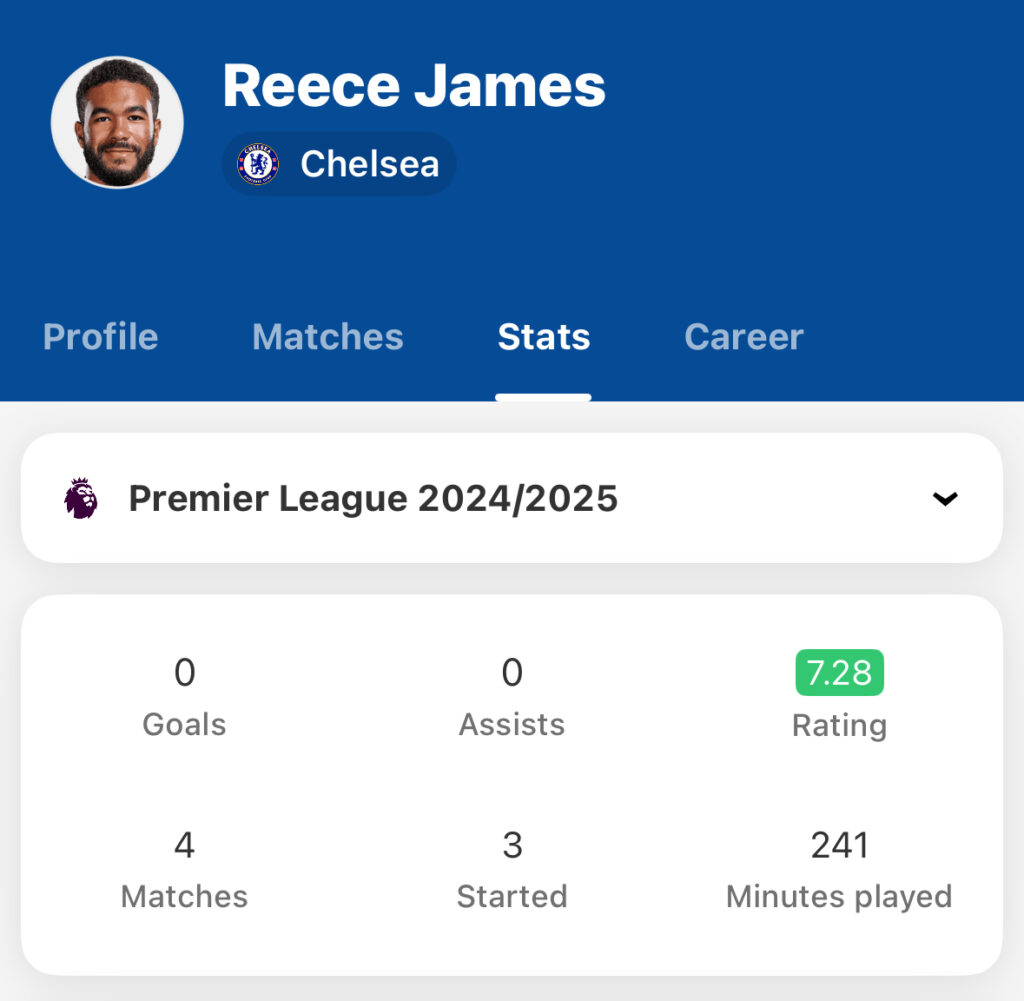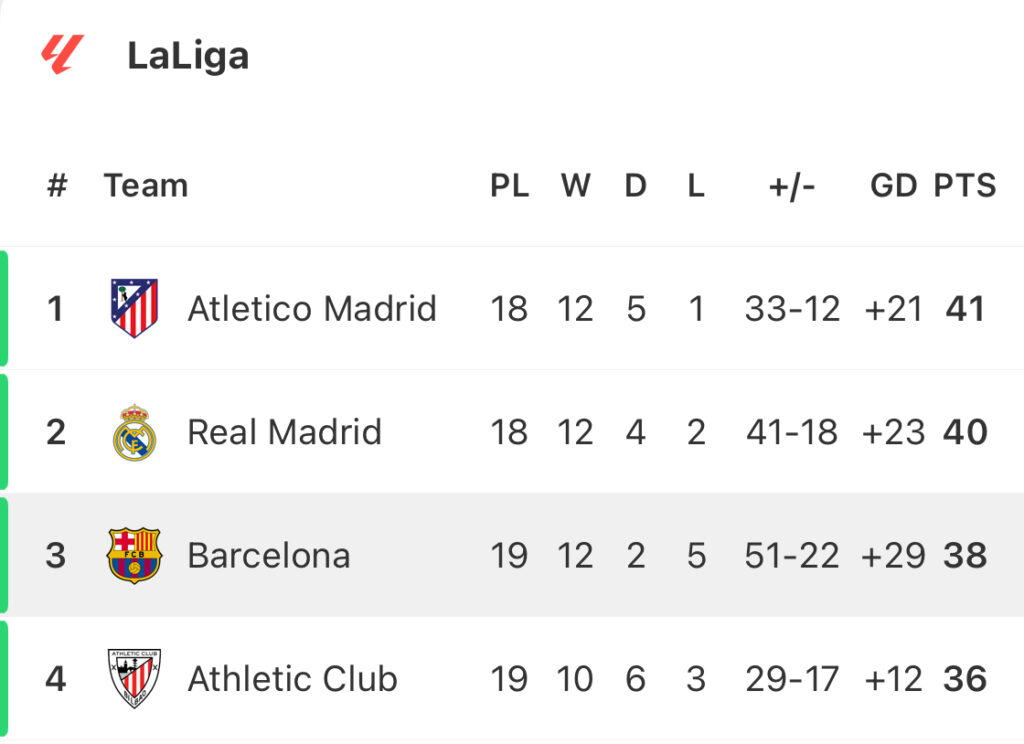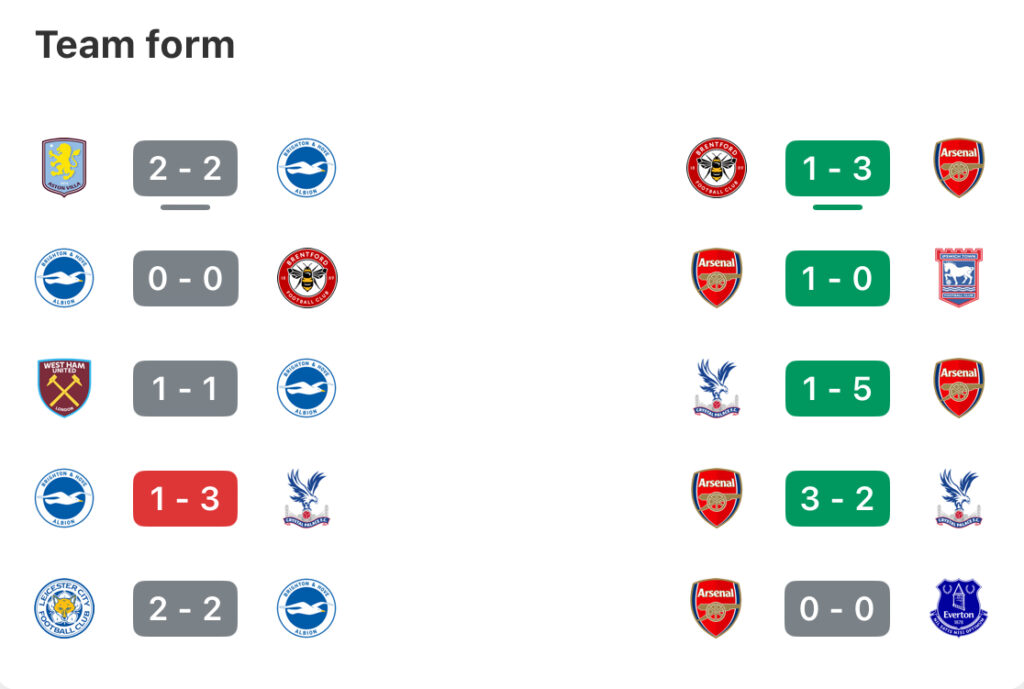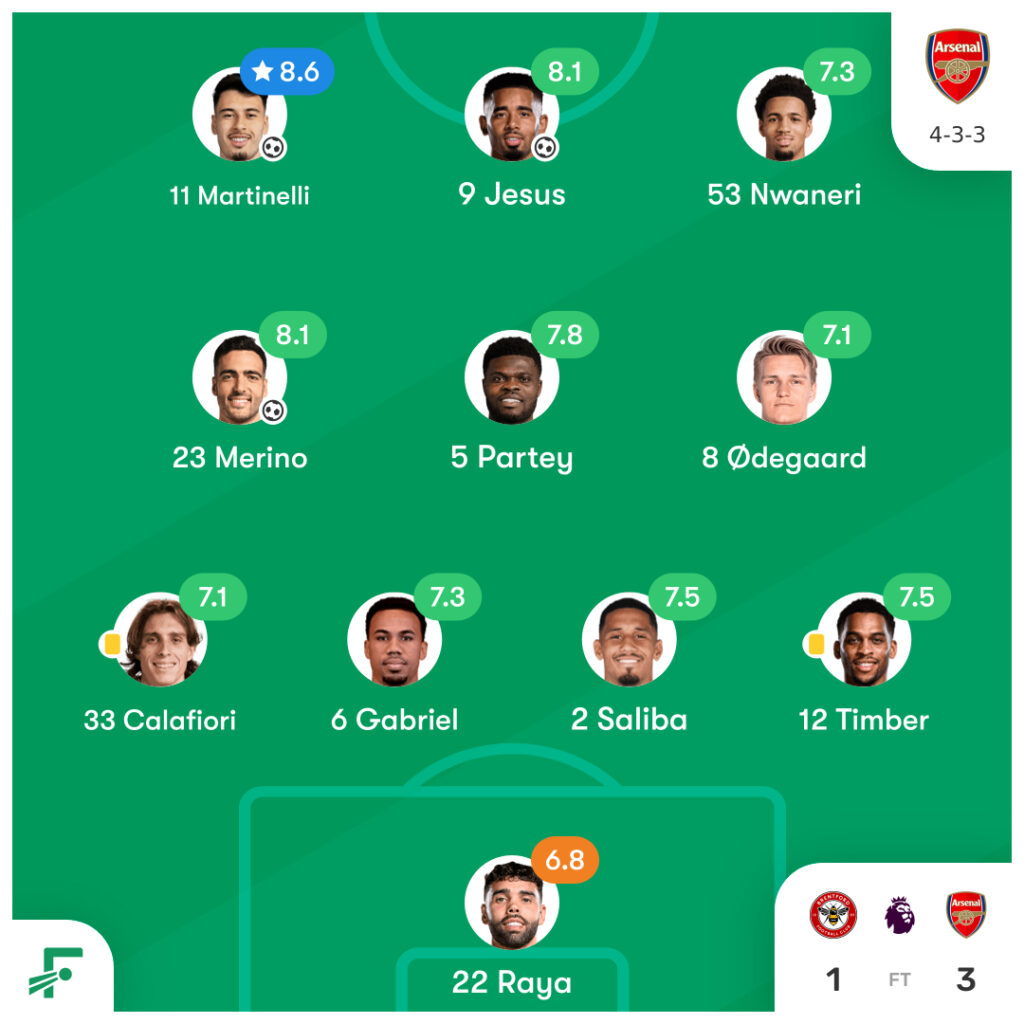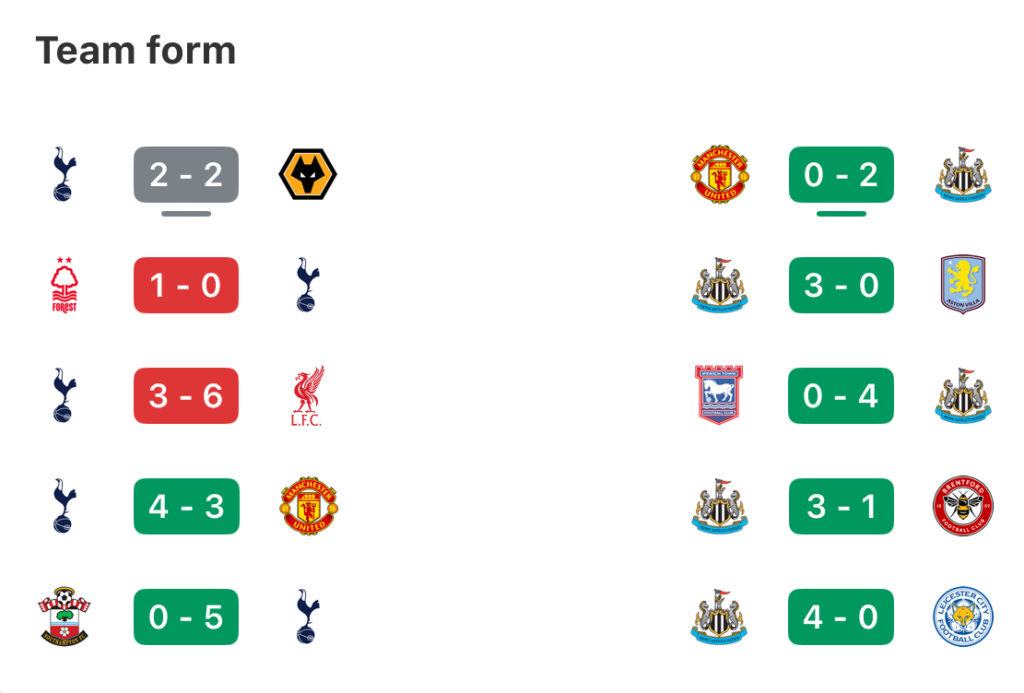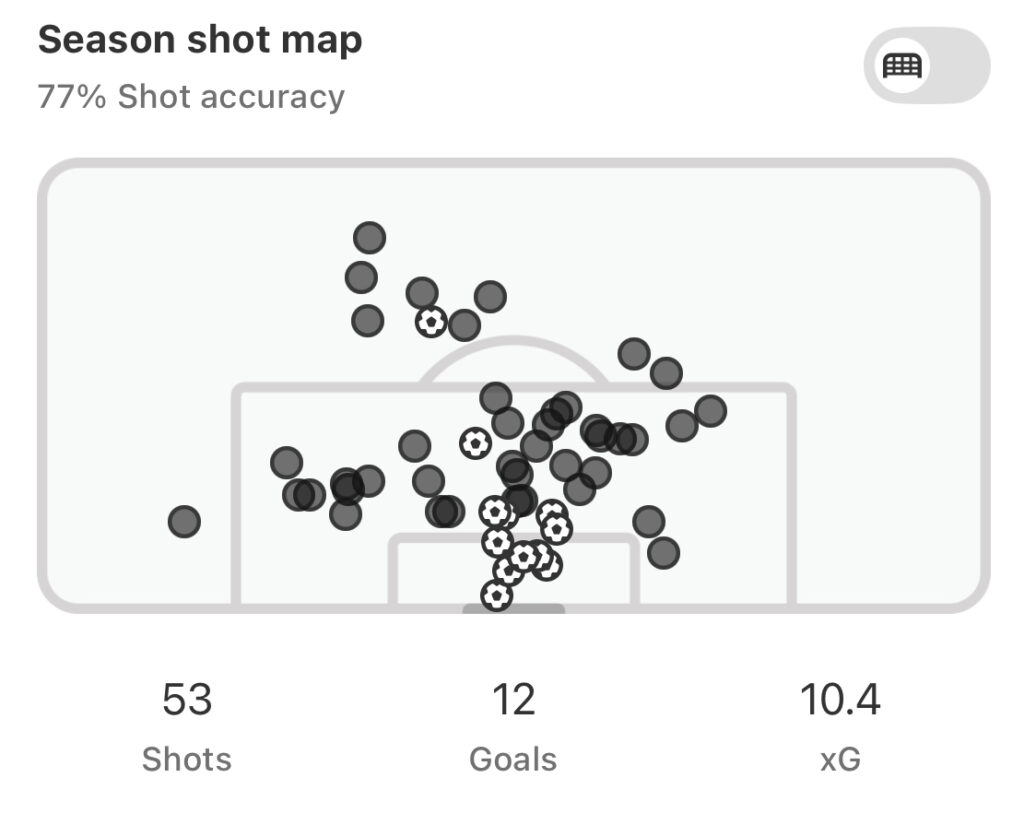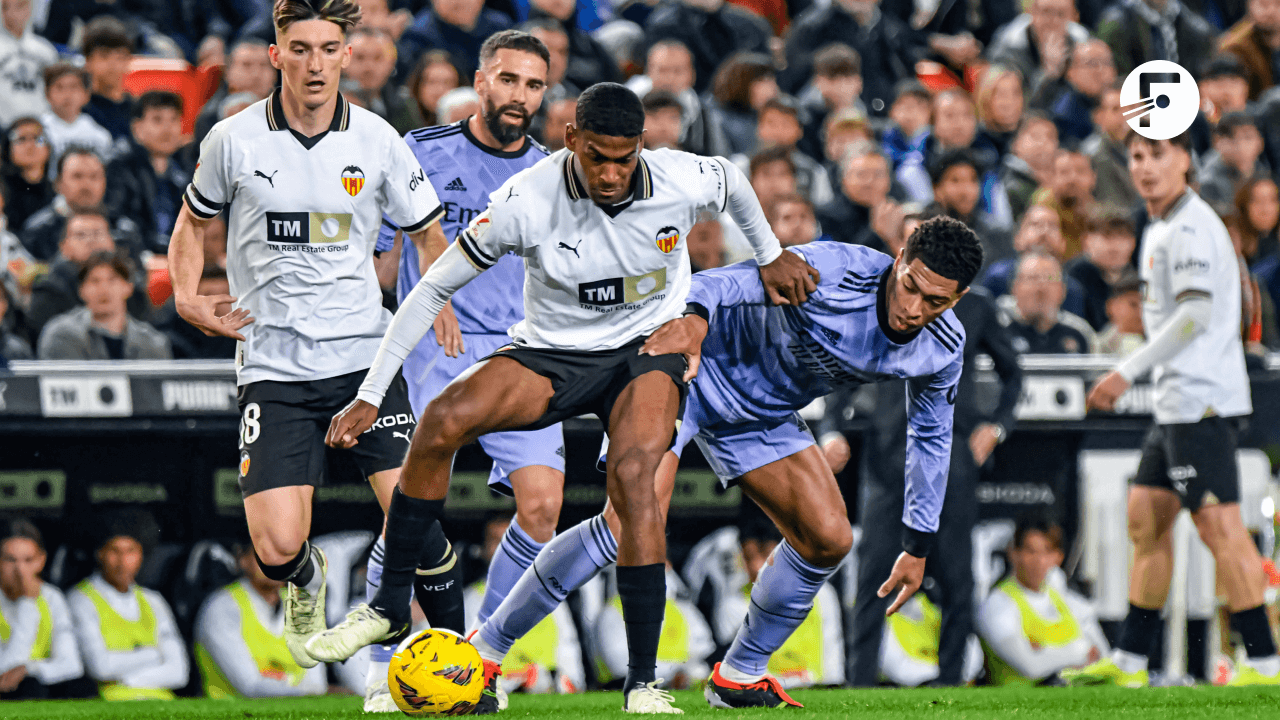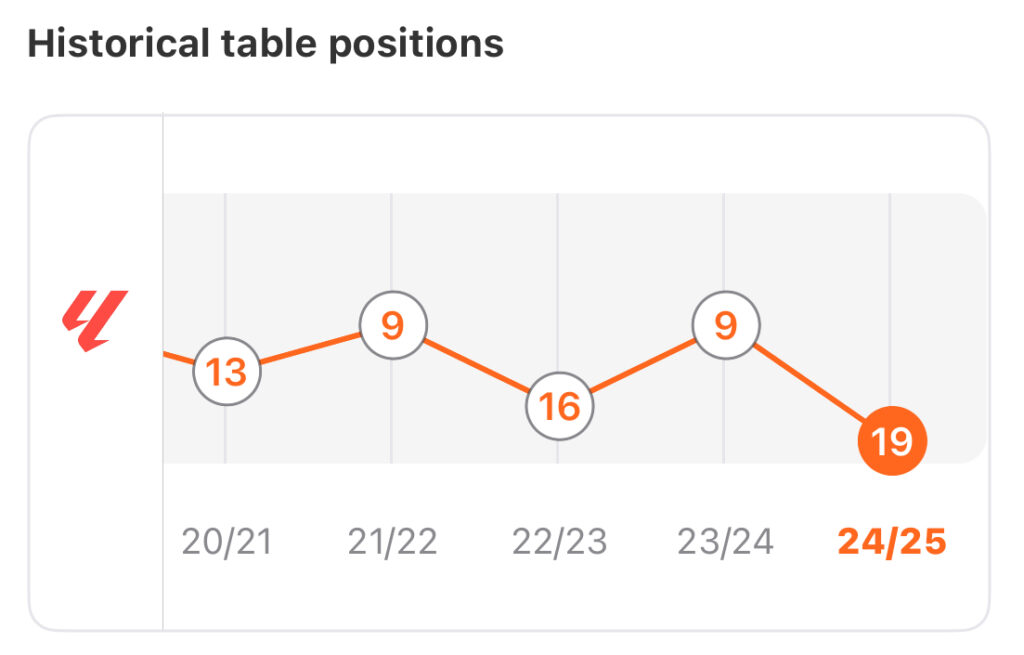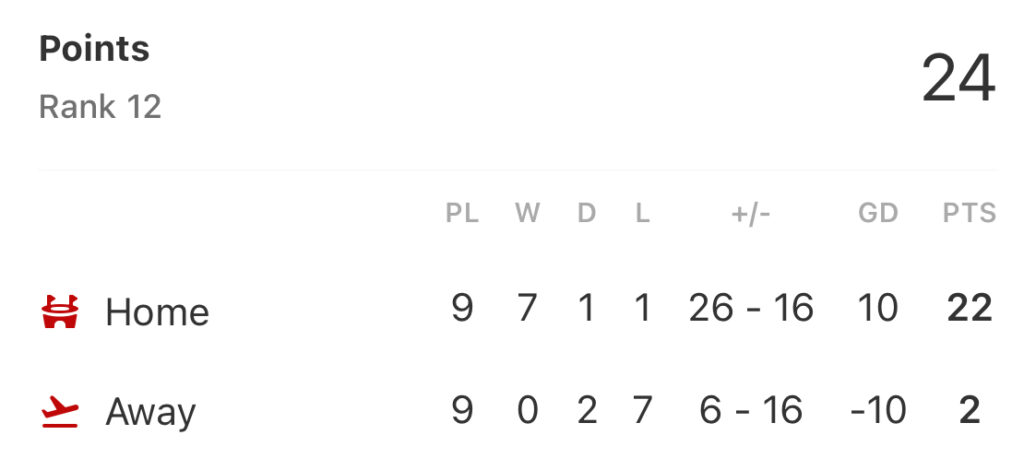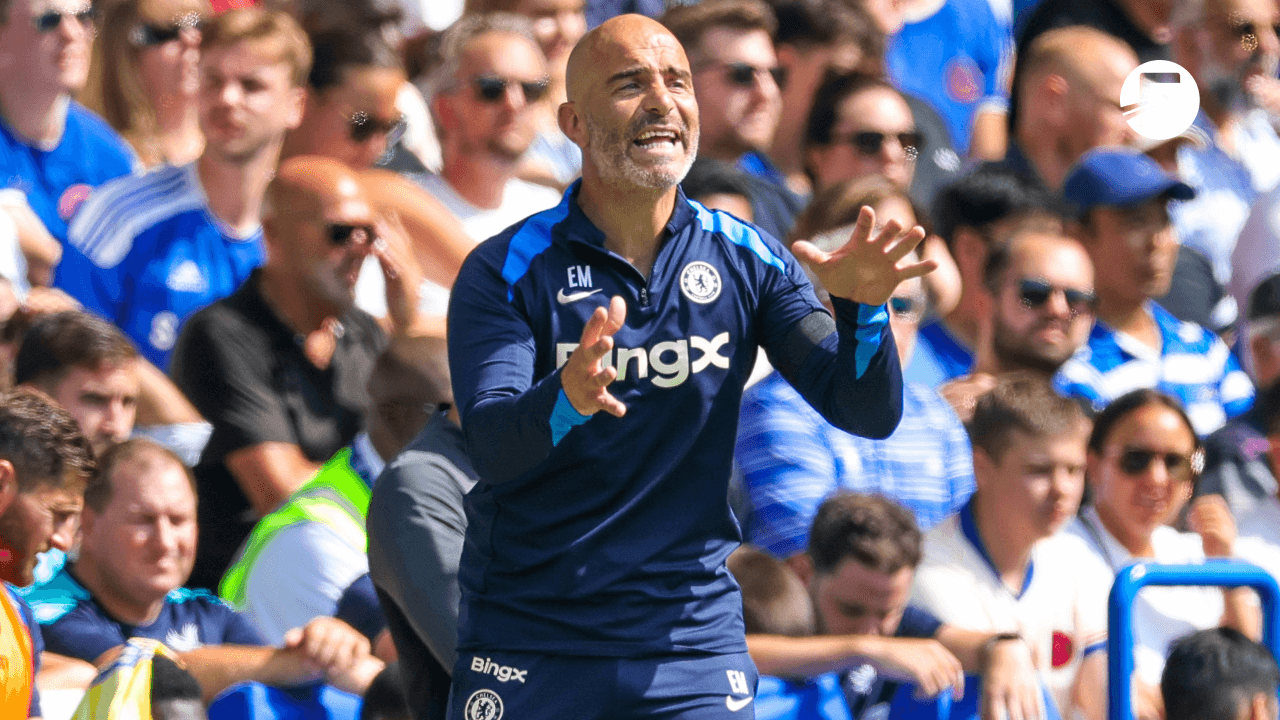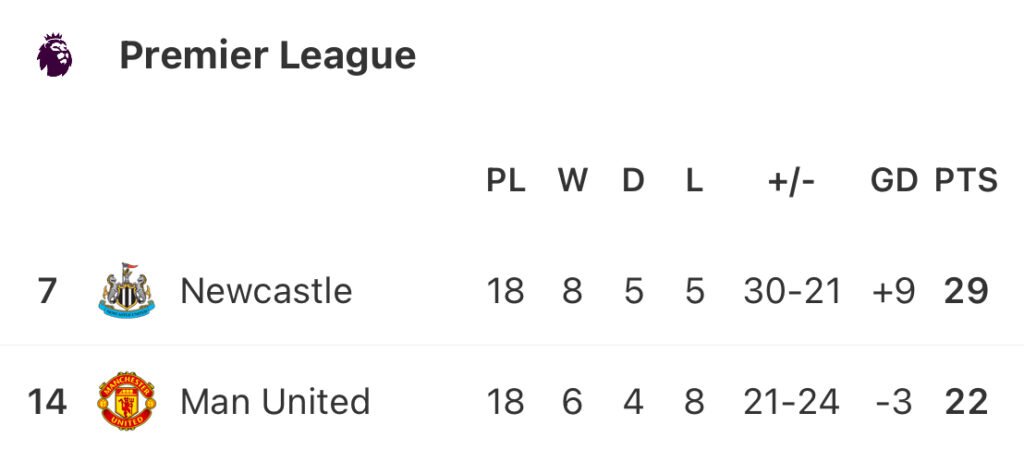Manchester United travel to Anfield on Sunday to take on the rampant Premier League leaders Liverpool.
By Sam McGuire
If form played a part in this fixture, it would very much be a case of David versus Goliath as these old rivals meet for the second time this season. However, we know that form counts for very little when the Red Devils take on the Reds.
The season so far
Liverpool are riding high at the top of the Premier League with 14 wins from 18 matches. Their only defeat in any competition this season arrived back in September. Since then, the Reds have been almost flawless under new manager Arne Slot.
Following back-to-back draws with Newcastle United and Fulham, Liverpool have won three on the bounce in the Premier League and have scored 14 goals in the process. Ahead of Saturday’s fixtures, the Merseyside club had a six point advantage at the top of the table with a game in hand (the postponed Merseyside derby) over nearest rivals Arsenal.
They have the player of the season at their disposal in Mohamed Salah. The 32-year-old has racked up 30 goal involvements in his 18 appearances and have either scored or assisted in 11 successive English top-flight matches. He is the form player, not just in the league but perhaps in the world.
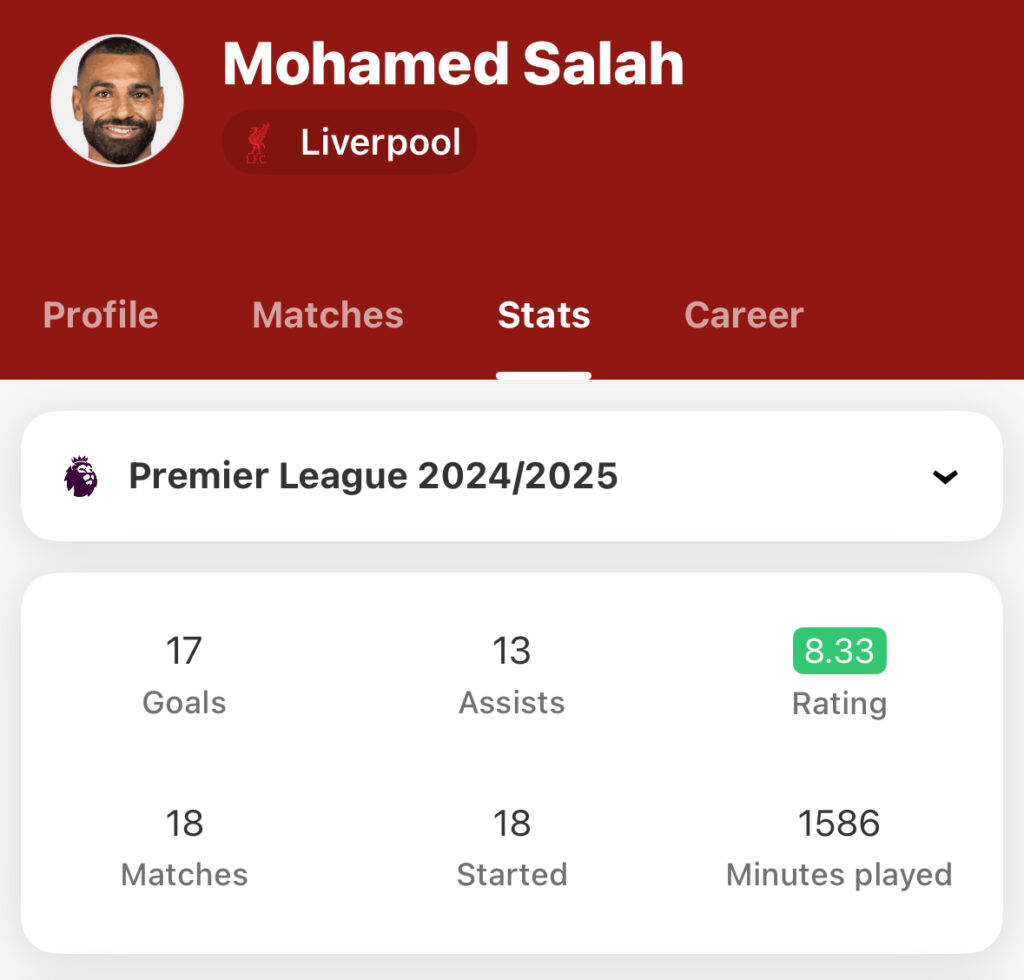
The supporting cast are pulling their weight too with Cody Gakpo and Luis Díaz being amongst the goals recently.
The Reds top the charts for goals scored (2.5) per game and have conceded the joint-fewest (0.9 per game). They’ve kept the joint-most clean sheets (eight) and have carved out the most big chances (81). Slot’s side have been the best in the Premier League and deserve their place at the summit.
Manchester United, meanwhile, have had a season to forget. Erik Ten Hag was dismissed earlier in the campaign and was replaced by Rúben Amorim. The Portuguese tactician guided his new club to a 2-1 win over Manchester City recently but that is their only win in their last six Premier League matches. They’ve lost the other five.
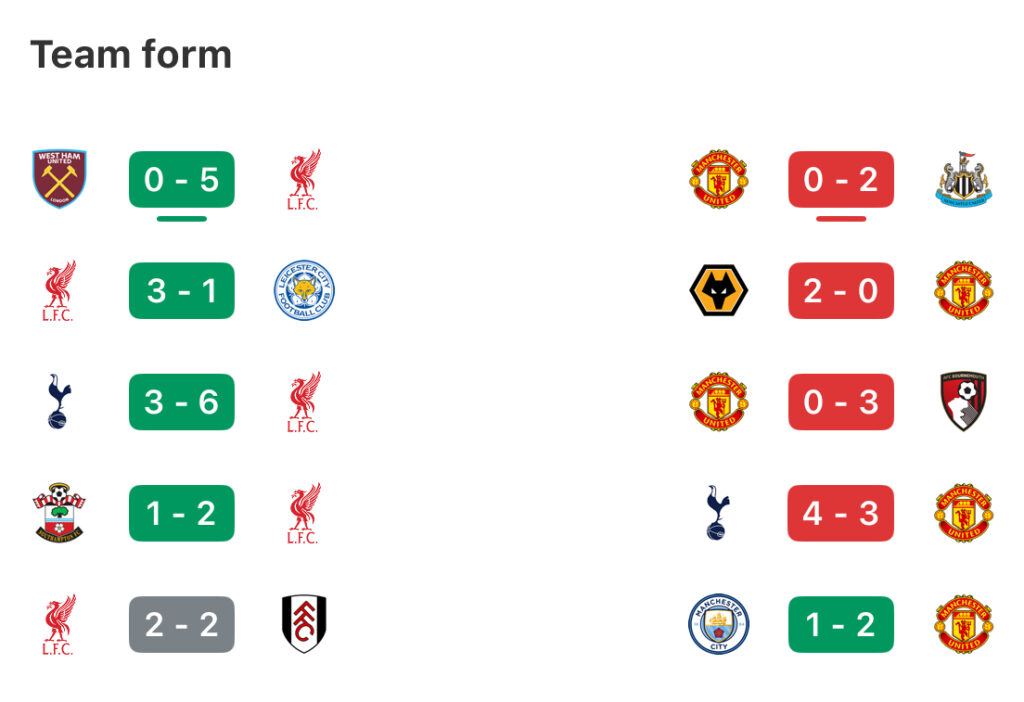
They find themselves in 14th position and are without a clean sheet since the 4-0 win over Everton on December 1st. The Red Devils are averaging just 1.1 goals per 90 and are conceding 1.4 goals. Their underlying numbers are just as worrying, with an expected goals total of 26.9. For context, Liverpool’s xG this term is 42, and United have played a game more.
Arguably the most enlightening stat to highlight the incredible gap between these two sides this term is that Liverpool have missed (47) almost as many big chances as United have carved out (48).
Previous encounters
Liverpool won the first clash of the season between these two teams at Old Trafford. A Salah-inspired showing earned the Reds a 3-0 win. Things have changed since then though. There’s a new man in the dugout for the Red Devils and the pressure isn’t on him to beat Liverpool at Anfield. They’re going to want to frustrate the hosts and dent their title challenge. A draw would go a long way here for Amorim and United. Ten Hag, meanwhile, had to have a go at Liverpool in August.
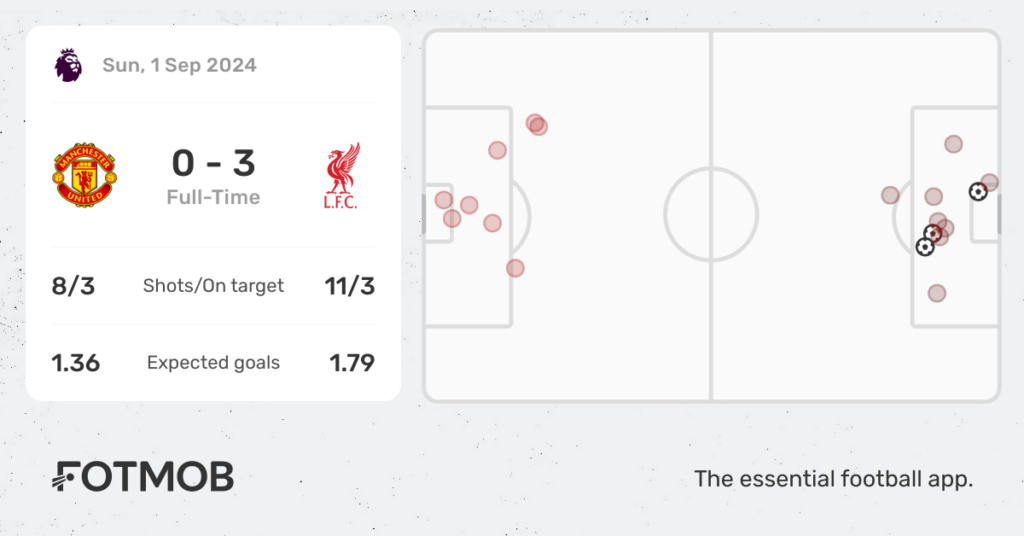
The dynamic is different. The pressure is on the Reds so it will be interesting to see how they break down a United side who will want to soak up pressure. It was the same tactic deployed by the Red Devils last season as they went unbeaten against Liverpool and knocked them out of the FA Cup. Again, though, it was different. That was Jürgen Klopp versus Ten Hag. This is Slot versus Amorim.
The injury situation
Liverpool are without centre-back duo Joe Gomez and Ibrahima Konaté for the clash while Conor Bradley is still ruled out following an injury he sustained against Real Madrid in November. The Reds are also without the suspended Dominik Szoboszlai after he picked up a fifth booking of the season in a brief cameo against West Ham United.
United are expected to be without Luke Shaw, Victor Lindelof and Mason Mount for the visit to Anfield. Bruno Fernandes is set to return to the starting XI having missed the defeat to Newcastle United following his red card against Wolves.
On paper, Liverpool are missing two starters while United will be without one.
Prediction
It has to be a Liverpool win, doesn’t it? If they are serious about winning the title, this has to be three points on Sunday. They need to be breezing past struggling sides like United. We’re go with a 3-1 win for the Reds.
(Cover image from IMAGO)
You can follow every Premier League game with FotMob this season — featuring deep stats coverage, xG, and player ratings. Download the free app here.
